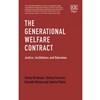apparent
Nondeterminacy, cycles and rational choice
in: Analysis (2020) Volume 80:3. AbstractA notorious problem that has recently received increased attention in axiology, normative theory and population ethics is the apparent ubiquity of what can be g. This paper illustrates how nondeterminacy can spawn cyclical rankings. So, accepting that practical reasons can admit of nondeterminacy challenges the widely held idea that ‘better than’ is transitive. As a result, standard approaches to rational choice under nondeterminacy fail to be action-guiding, since in some situations all options are dominated, that is, impermissible according to standard rational choice criteria.
Do Offenders Deserve Proportionate Punishments?
Criminal Law & Philosophy Abstract The aim of the paper is to investigate how retributivists should respond to the apparent tension between moral desert and proportionality in punishment. I argue th
The Nonidentity Problem
The Stanford Encyclopedia of Philosophy (Summer 2019 edition), Zalta, E. (red.). https://plato.stanford.edu/archives/sum2019/entries/nonidentity-problem The nonidentity problem raises questions regardin
Epistemic Utility Theory Meets Population Ethics
Epistemic utility theorists have recently started addressing the question of how to compare epistemic states that differ in the number of propositions they have an opinion on. It has become apparent t

Hidden convergence in ethics
Ethics has for a long time been dominated by several competing traditions. But is it entirely true that these traditions have not moved closer with time. That is what this project aims to investigate.
Malcolm Fairbrother (presenter): How Much Do People Value Future Generations? (paper together with Gustaf Arrhenius, Krister Bykvist, Tim Campbell, webinar)
Malcolm Fairbrother is professor of sociology at Umeå University and researcher at the Institute for Futures Studies. In this seminar he presents the paper How Much Do People Value Future Generations? C

A welfare state for all generations
In a society there are always several generations co-existing and they all need different things from the welfare state. This result is a conflict between generations on who should be favored by publi by , Tommy Ferrarini, Kenneth Nelson and Joakim Palme.
Climate Change and Optimum Population
The Monist, Volume 102, Issue 1, pages: 42-65. doi.org/10.1093/monist/ony021 Abstract It is often claimed that reducing population size would be advantageous for climate change mitigation, on the ground
#MeToo, Social Norms, and Sanctions
in: The Journal of Political Philosophy, Volume 28:3, s. 273-295 (2020) In October 2017, following the Harvey Weinstein scandal, US actress Alyssa Milano called upon victims of sexual harassment to uni
Beyond Uncertainty. Reasoning with Unknown Possibilities
Cambridge University Press The main aim of this Element is to introduce the topic of limited awareness, and changes in awareness, to those interested in the philosophy of decision-making and uncertain








